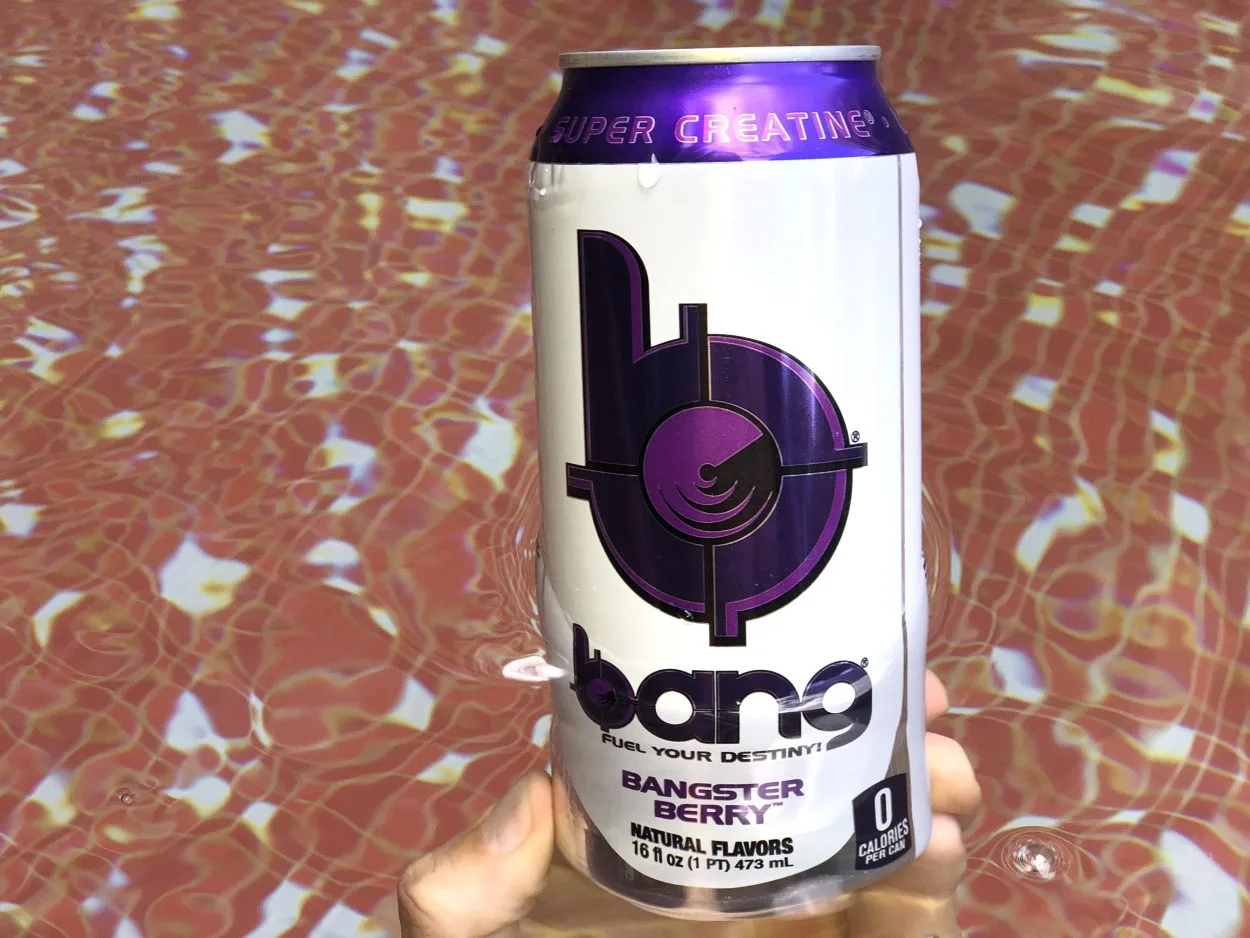
The energy drink industry is flourishing and as every month passes, a new drink is coming out. This way the competition is getting tougher. Today, we’ll talk about the competition between Bang and Baya.
Bang is a well-known energy drink that was launched in 2012, while Baya came out on March 1, 2022. Moreover, Bang has evolved and offers a wide range of flavors, whereas Baya comes in only three flavors.
A 16 oz Bang can have 300 mg of caffeine with no sugar, Baya on the other hand has 160 mg of caffeine and 22 g of sugar per a 12 oz can.
In addition, Bang includes several essential vitamins and Baya only contains vitamin C which isn’t bad, but it lacks so many other vitamins.
If you want to know more about the differences between Baya and Bang, then keep on reading. Let’s begin!
Contents
Nutritional Facts Of Baya And Bang
The differences between Baya and Bang can be seen through their nutritional facts labels.
Thus, here’s a table for the nutritional facts about Baya.
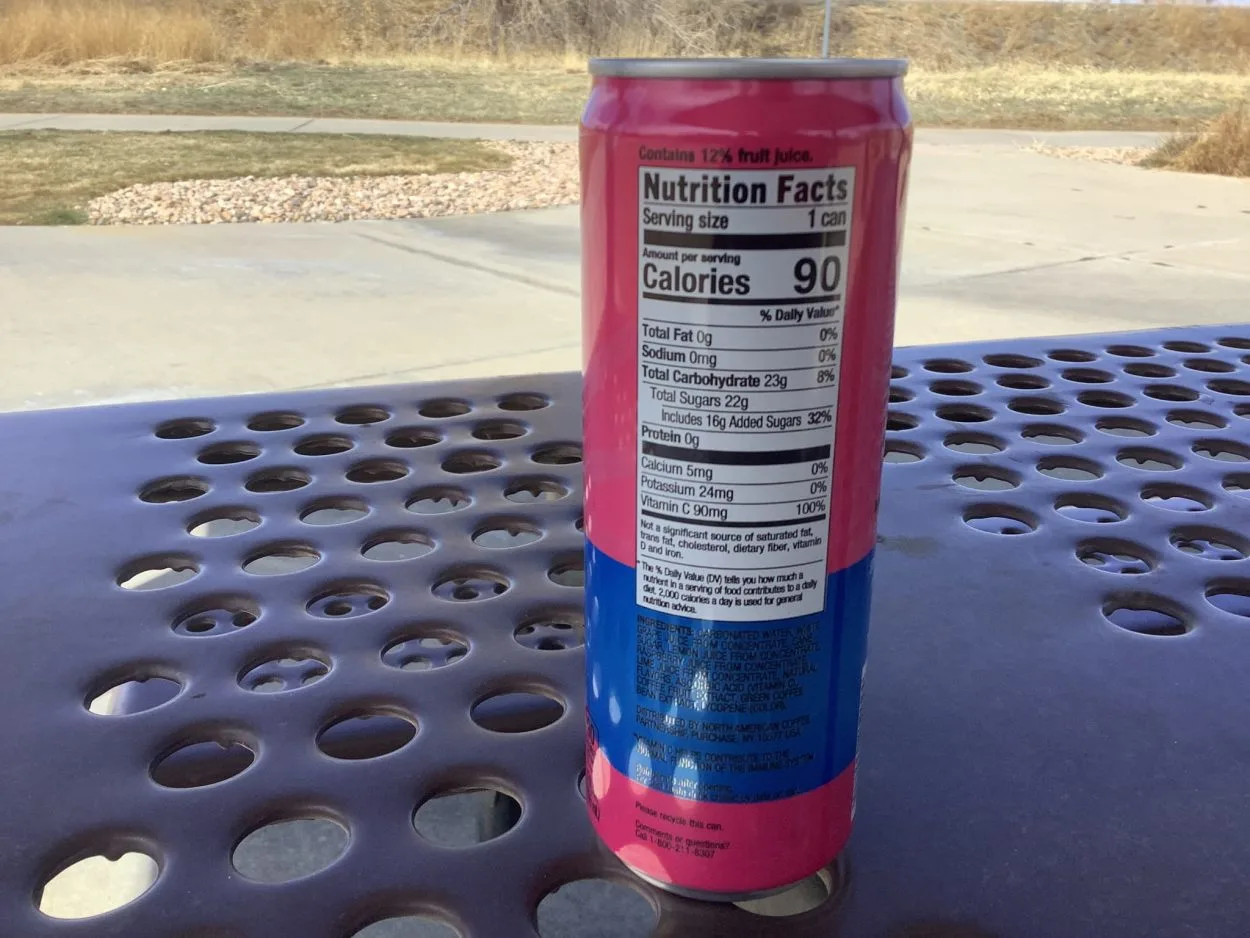
| Nutrition Facts | Amount Per Serving (12 oz) | Recommended Daily Amount |
| Calories | 90 | 2000-2500 |
| Total Fat | 0 g | 65 g |
| Sodium | 0 mg | 2400 mg |
| Total Carbohydrate | 23 g | 300 g |
| Total Sugar | 22 g | 25-36 g |
| Added sugar | 16 g | 25-36 g |
| Protein | 0 g | 65 g |
| Calcium | 5 g | 1000 mg |
| Potassium | 24 mg | 3500 mg |
| Vitamin C | 90 mg | 90 mg |
Here’s the nutritional facts table of Bang.
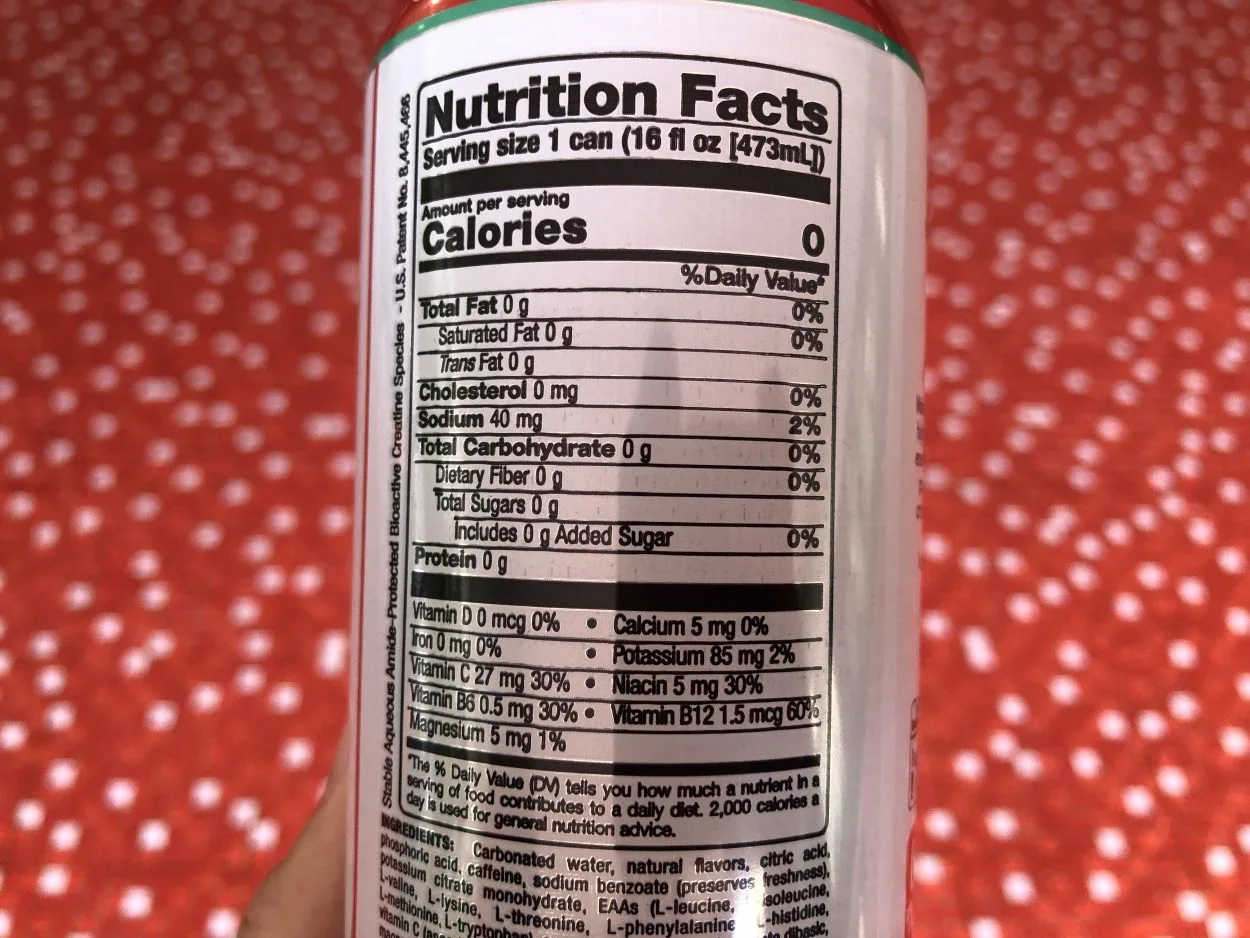
| Nutrition Facts | Per Serving (16 fl. oz) | Recommended Daily Amount |
| Energy | 0 calories | 2000-2500 |
| Protein | 0 g | 65 g |
| Fat (Of which Saturated) | g (g) | 65 g |
| Carbohydrate (Of which Sugars) | 0 g (0g) | 25-36 g |
| Sodium | 40 mg | 2400 mg |
| Caffeine | 300 mg | 400 mg |
| Vitamin B3 (Niacin) | 5 mg | 14-16 mg |
| Vitamin B6 | 0.5 mg | 1.7 mg |
| Vitamin B12 | 1.5 μg | 2.4 mcg |
| Vitamin C | 27 mg | 90 mg |
| Magnesium | 5 mg | 320-410 mg |
| Calcium | 5 mg | 1000 mg |
The most noticeable differences between Baya and Bang are the sugar and caffeine, as well as the vitamin contents. As you can see, Baya contains 22 g of sugar while Bang doesn’t contain any.
In addition, the caffeine contents of both of the cans are high, considering the sizes.
Moreover, vitamins are extremely crucial for human beings, therefore, it’s important that moderate doses of each vitamin must be consumed.
The good thing about Bang is that, even though it has a high dose of caffeine, it contains many vitamins and minerals that cover up its caffeine content. However, I suggest you don’t overconsume.
Ingredients In Baya And Bang
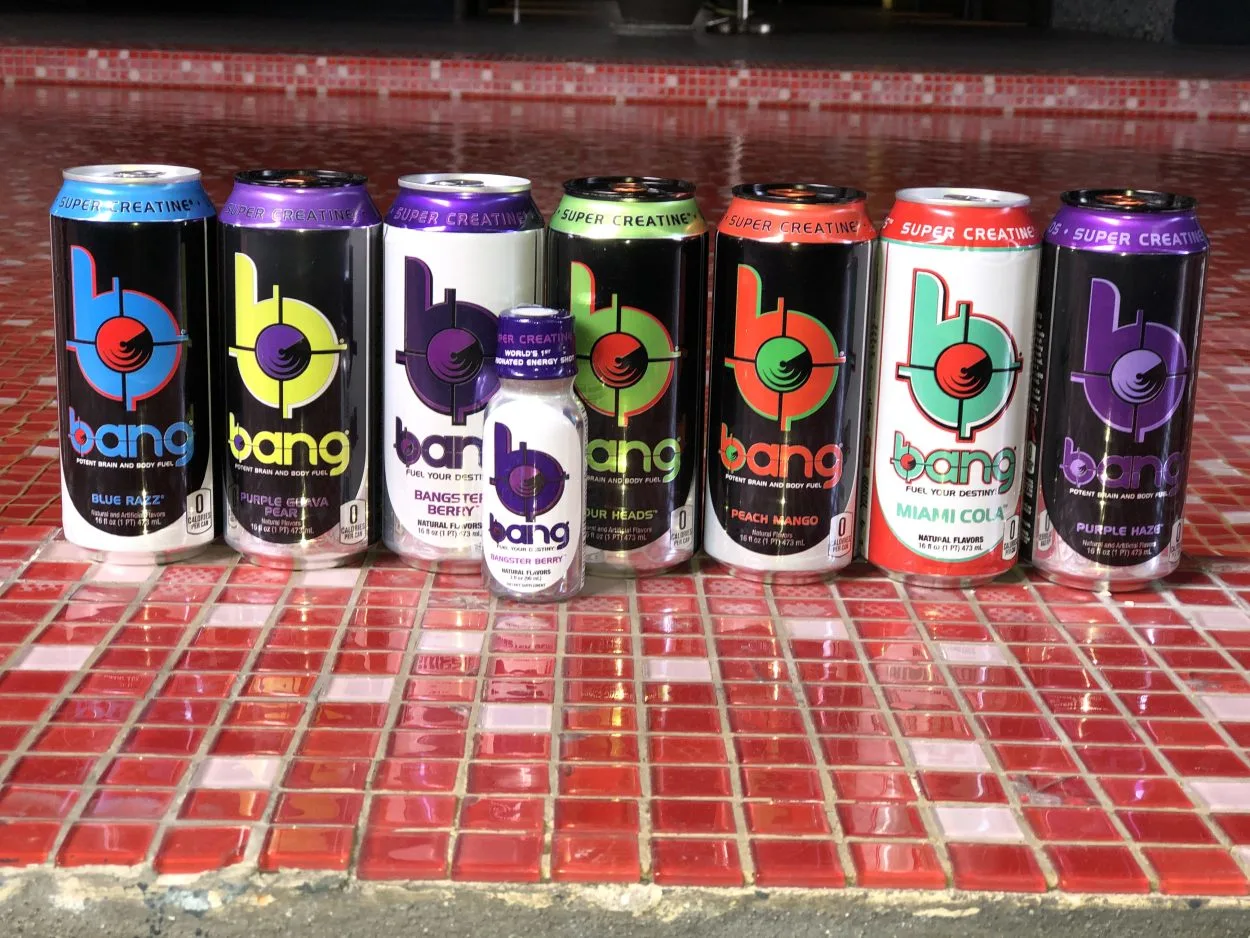
Ingredients determine whether a drink is healthy or not, thus you should always take a peek at the list of ingredients that can be found on the back of the energy drinks can.
Let’s have a look at the ingredients of Baya:
- Carbonated Water
- White Grape Juice from Concentrate
- Cane Sugar
- Lemon Juice from Concentrate
- Raspberry Juice from Concentrate
- Lime Juice from Concentrate
- Natural Flavors
- Ascorbic Acid (vitamin C)
- Coffee Fruit extracts
- Green Coffee Extracts
- Lycopene
Here’s a list of ingredients present in Bang:
- Carbonated water
- Citric Acid Anhydrous
- Natural Flavors
- Malic Acid
- Caffeine Anhydrous
- Sodium Benzoate (preserves freshness)
- Potassium Citrate Monohydrate
- EAAs (L-leucine, L-isoleucine, L-threonine, L-phenylalanine, L-histidine, L-valine, L-lysine, L-methionine, L-tryptophan)
- Sucralose
- Potassium phosphate dibasic
- Vitamin C (ascorbic acid)
- Potassium sorbate (preserves freshness)
- Magnesium chloride
- SUPER CREATINE® (Creatyl-L-Leucine [Creatine bonded to L-Leucine])
- Calcium chloride
- Calcium disodium EDTA
- Vitamin B3 (niacinamide)
- CoQ10 (coenzyme Q10)
- Vitamin B6 (pyridoxine hydrochloride)
- Vitamin B12 (methylcobalamin)
As you can see for yourself, the ingredients of Baya are simple and typical, while Bang is created with much more complex and health-beneficial ingredients.
Bang contains several ingredients that are quite beneficial for the human body, one of those ingredients is EAAS. Your body requires about 20 different amino acids in order to function properly and Bang has a good amount of those EAAS.
There’re many benefits of consuming EAAS, some of them are:
- Helping with mood and insomnia
- Boosting athletic performance
- Preventing muscle loss
- Promoting weight loss
- Helping protein synthesis
- Promoting tissue repair
- Promoting nutrient absorption
Caffeine Content In Baya And Bang
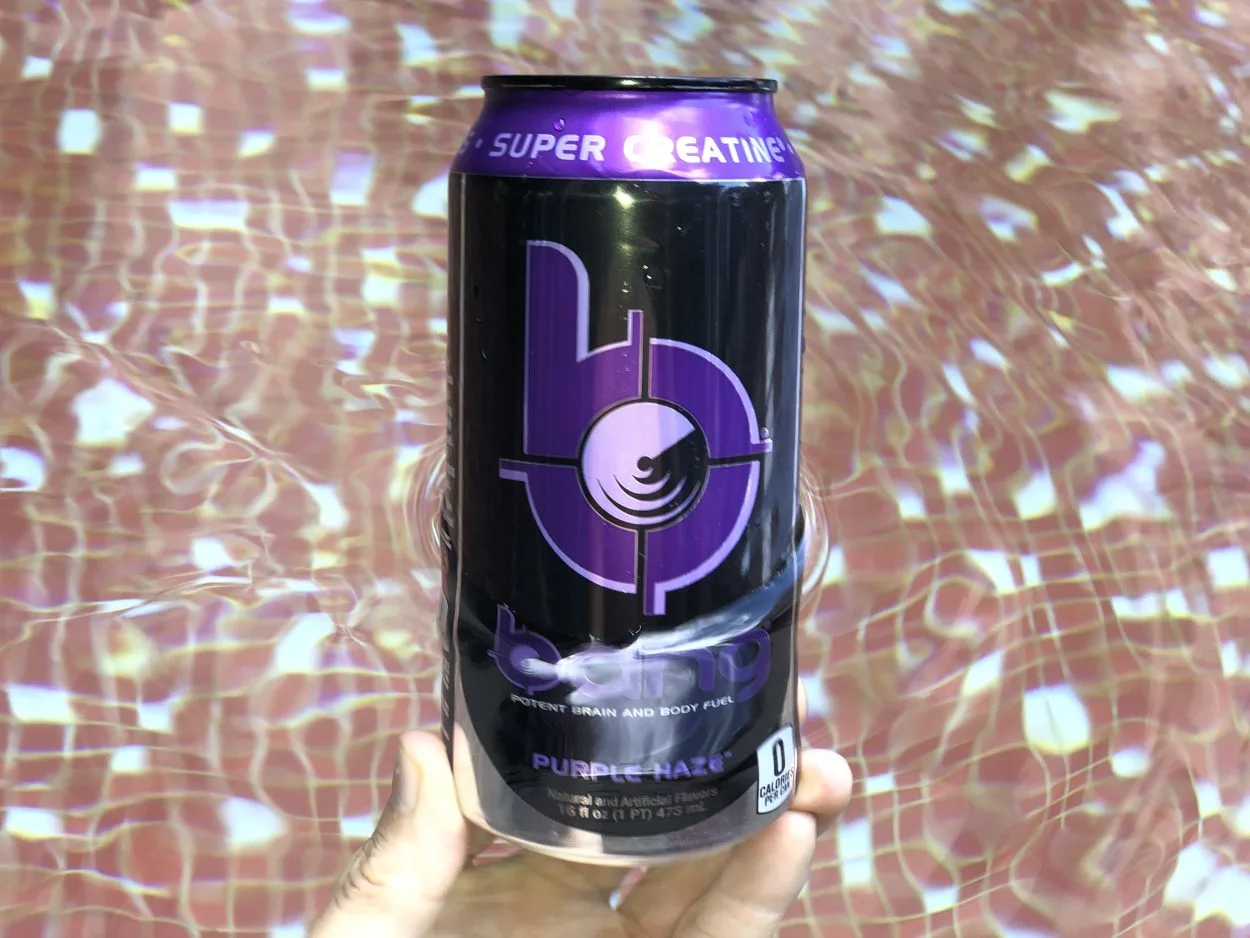
Caffeine is one of the most crucial ingredients as it’s used as an active ingredient that helps to stimulate the brain and the Central Nervous System.
Caffeine has the potential to increase mental and physical performance which leads to increased productivity.
Energy drinks are the most popular provider of energy and that energy comes from caffeine. Bang and Baya contain quite heavy doses of caffeine which makes them the ideal energy drink for daily consumers.
Bang includes 300 mg of caffeine per 16 oz, while Baya has 160 mg per 12 oz.
In my opinion, the caffeine contents of both of them are high, in fact, Bang’s caffeine content is extremely close to the recommended limit which is 400 mg.
According to the FDA, healthy adults must limit their daily caffeine consumption to 400 mg if they want to avoid health complications.
While people enjoy the high doses of caffeine for its alluring effects, researchers have associated excessive consumption of caffeine with side effects which include:
- Restlessness and shakiness.
- Insomnia.
- Headaches.
- Dizziness.
- Fast heart rate.
- Dehydration.
- Anxiety.
- Dependency.
Caffeine is good for you as long as you keep its intake in moderation. Nevertheless, there’re some people who can’t even process the smallest dose of caffeine
Here’s a list of side effects associated with caffeine sensitivity:
- racing heartbeat.
- headache.
- jitters.
- nervousness or anxiousness.
- restlessness.
- insomnia.
Bang and Baya can be too much for people with caffeine sensitivity, so if you aren’t looking to get in trouble, I suggest you steer clear of such energy drinks.
Sugar In Baya And Bang
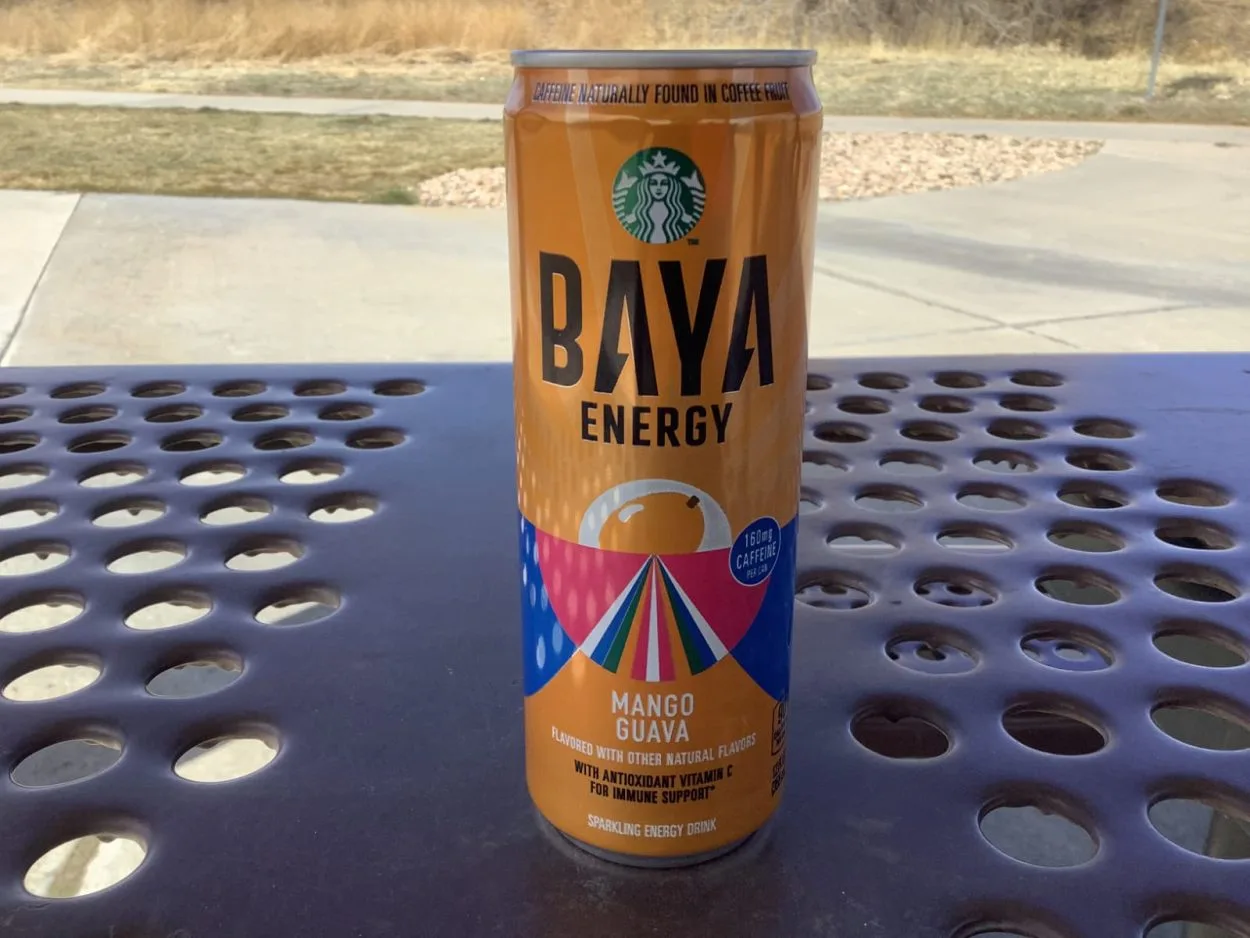
As sweet as sugar sounds, it can be the cause of several health complications. Sugar is another source of energy, however, the boost only lasts for a short period of time.
Nonetheless, that doesn’t stop energy drinks to include high doses of sugar.
Well, Bang is a sugar-free energy drink, but Baya has 22 g of sugar per 12 oz, which if you ask me is quite a high dose.
Usually, energy drinks include sugar for two reasons: either to mask the bitterness that certain ingredients can have or include another source of energy besides caffeine.
The sugar content of Baya is high and close to the recommended limit. The AHA recommends 25 g for women and 36 g for men per day.
It isn’t clear why Baya included such an immoderate dose of sugar, but it’s clear that you’ll develop some health complications if you consume Baya daily.
Some studies have linked excessive consumption of sugar to side effects which include:
- Headaches.
- Irritability.
- Fatigue and difficulty concentrating.
- Feeling jittery or anxious.
- Feeling shaky or dizzy.
- Hunger.
- Bloating.
- Higher blood pressure.
- Inflammation.
- Weight gain
- Diabetes.
- Fatty liver disease.
- Increased risk for heart attack and stroke.
Calorie Content In Baya And Bang
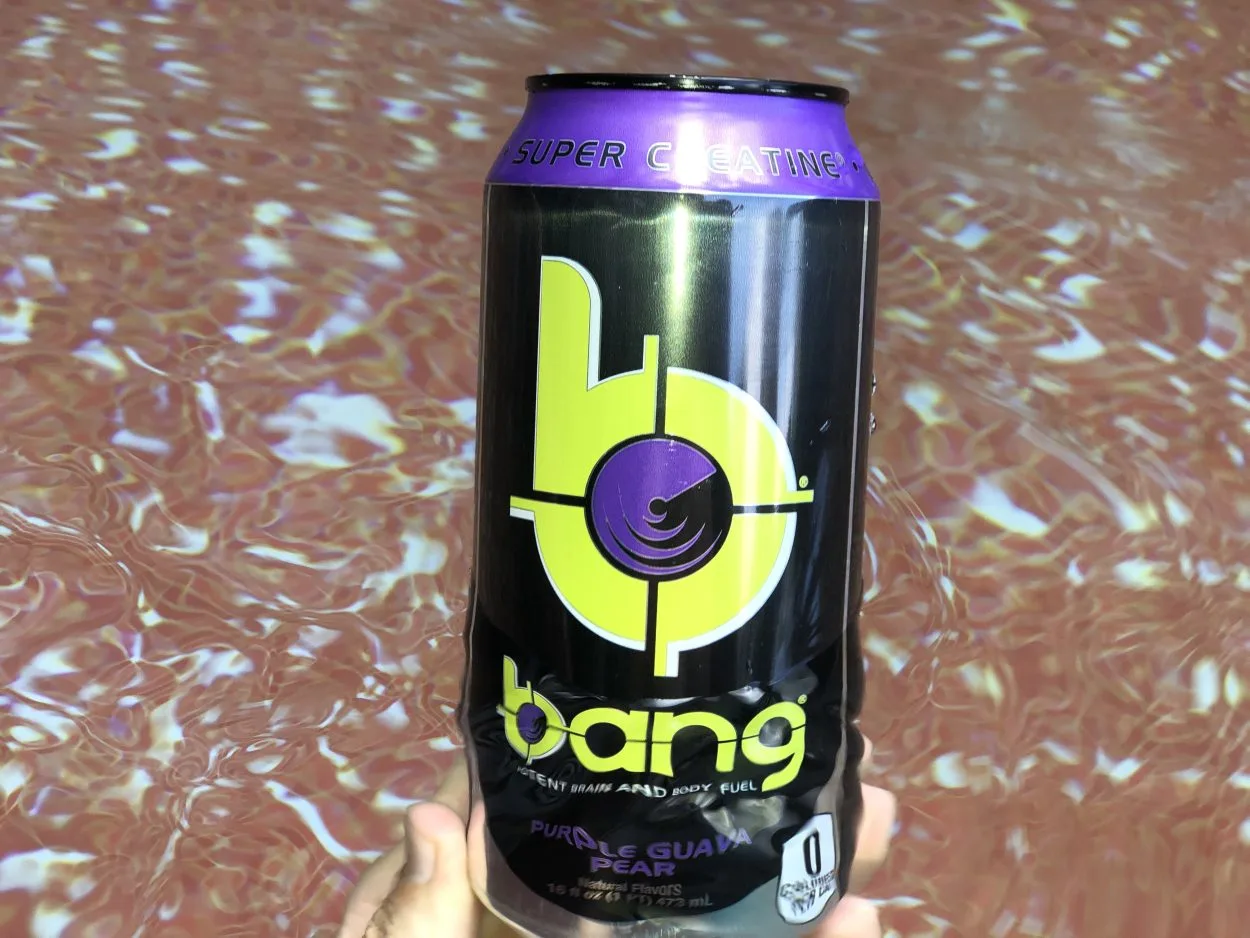
Calories are an absolute requirement, they keep your heart beating and your lungs breathing. Moreover, calories also determine how much energy you have in your body.
Basically, the more calories are consumed, the greater your energy levels will be.
However, you must be careful with calorie consumption as too many calories can lead to obesity. Fortunately, Bang is a zero-calorie energy drink, Baya on the other hand contains 90 calories per can.
The calorie content of Baya is within the recommended limits, which is 2000 for women and 2500 for men per day.
Is Baya Better Than Bang?
In my opinion, Bang is much better than Baya because of many reasons:
- Bang is sugar-free, whereas Baya has 22 g of sugar per can.
- Bang is a zero-calorie energy drink, but Baya contains 90 calories.
- Bang includes all the essential vitamins and EAAS, but Baya doesn’t.
- Bang comes in a wide range of flavors, and Baya only comes in three flavors.
Nevertheless, overconsumption of any energy drink can lead to dangerous consequences. There’s a recommended limit for every food or supplement which you can see in the table above.
Check out this video to know if Baya is worth buying or not.
Alternatives To Baya And Bang
Baya and Bang, both are different energy drinks, although the caffeine contents are high in both of them.
If you’re looking for a low-caffeinated energy drink, check out the list of alternatives below:
- ZEVIA Zero Calorie
- NUUN Energy
- SAMBAZON Amazon Energy
- LIFEAID FOCUSAID Clean Energy
- ZOA Zero Sugar
- Rowdy Energy
Conclusion
- Both Baya and Bang are pretty strong energy drinks.
- 16 oz can of Bang has 300 mg of caffeine with zero sugar and calories, while 12 oz can of Baya has 160 mg of caffeine with 22 g of sugar and 90 calories.
- Bang includes all the essential vitamins and EAAS, but Baya doesn’t.
- The caffeine contents of Bang and Baya are high, so if you’re sensitive to caffeine, you shouldn’t consume such drinks.
- The ingredients of Baya are typical, but Bang is created with health-beneficial ingredients.
- Bang comes in several flavors whereas Baya is available in three flavors only.
